
Erin K. McCreary, PharmD, BCPS, BCIDP, discusses emerging literature on potential therapies COVID-19 and how the infectious disease community can work together during this pandemic.

Erin K. McCreary, PharmD, BCPS, BCIDP, discusses emerging literature on potential therapies COVID-19 and how the infectious disease community can work together during this pandemic.
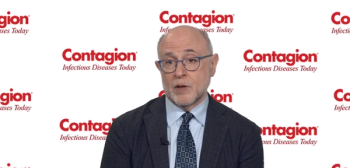
Ian Frank, MD, discusses upcoming treatments for people with HIV.

Tina Q. Tan, MD, discusses vaccine misinformation.

Tina Q. Tan, MD, discusses the particular severity of the ongoing flu season.

Jason Pogue, PharmD, BCPS, BCIDP, shares his thoughts on a study published in the International Journal of Antimicrobial Agents.

Saskia v. Popescu, PhD, MPH, MA, CIC, a senior infection prevention epidemiologist in Phoenix, Arizona, discusses what it’s like for these frontline fighters and what we can do to “flatten the curve.”

Colleen Kelley, MD, MPH, describes what's on the horizon in HIV prevention.
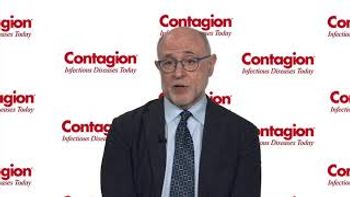
Ian Frank, MD, explains the "Ending the Epidemic" initiative.
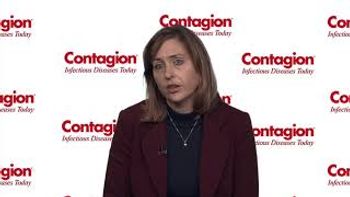
Colleen Kelley, MD, MPH, describes the current state of HIV vaccine efforts.

Colleen Kelley, MD, MPH, discusses the importance of targeted youth HIV prevention measures.
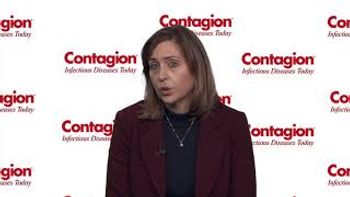
Colleen Kelley, MD, MPH, associate professor at the Emory University School of Medicine, discusses some of the ongoing themes in developing HIV science.
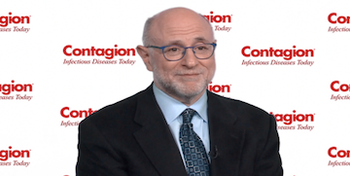
Ian Frank, MD, discusses the need to include women in HIV research.
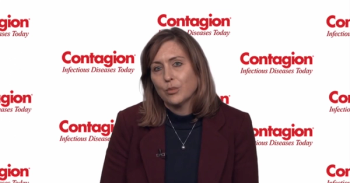
Colleen Kelley, MD, MPH, describes barriers to the implementation of HIV pre-exposure prophylaxis.
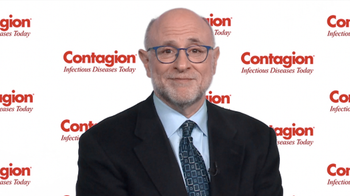
Ian Frank, MD, discusses the global character of the novel coronavirus.

Jason Gallagher, PharmD, discusses the risk factors for experiencing complications of influenza.

Debra Goff, PharmD, describes the success of a community outreach approach to spreading the word about antimicrobial stewardship among dentists and orthopedic surgeons.

Jason Gallagher, PharmD, FCCP, FIDSA, BCPS, discusses the significant drug approvals in ID over the course of 2019.

Jason Tokumoto, MD, reflects on the ways people respond to HIV diagnosis.

Jason Gallagher, PharmD, FCCP, FIDSA, BCPS, explains some of the factors which underlie the cost of ID treatment.

Jason Gallagher, PharmD, FCCP, FIDSA, BCPS, explains contemporary challenges facing ID clinicians individually and as a profession.

Mark Riddle, MD, DrPH, speaks to Contagion at ACG 2019 about the results of a study looking into microbiome changes associated with single-dose antibiotics for the treatment of traveler's diarrhea.
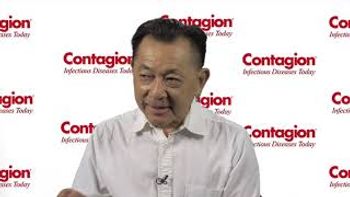
Jason Tokumoto, MD, explains the need to look beyond nonadherence and understand a patient with HIV as a complex person.

Jason Gallagher, PharmD, FCCP, FIDSA, BCPS, discusses areas of unmet need and challenges ahead in the ID development economic landscape.

Jason Tokumoto, MD, discusses the evolution of HIV treatment.

Andrea L. Cox, MD, PhD, comments on the future of HCV vaccine development efforts in light of the 2019 trial which did not prevent chronic infection.

Mark Riddle, MD, DrPH, speaks to Contagion about preventing drug resistance in people who acquire traveler's diarrhea.

Andrea L. Cox, MD, PhD, discusses the implications of discovering that an experimental vaccine was not effective at preventing chronic hepatitis C virus.

Daniel Chastain, PharmD, BCIDP, discusses how antiretroviral stewardship might practically be implemented in the context that antimicrobial stewardship as a whole is often underdeveloped.

Andrea L. Cox, MD, PhD, discusses some of the challenges in developing a vaccine for hepatitis C and details the results of a vaccine trial.

Max Brito, MD, MPH, explains the value of bringing safe, confidential, and non-stigmatizing HIV treatment to the community at IDWeek2019.